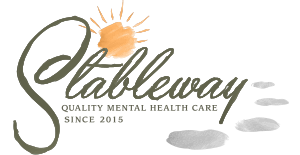
If you’re raising teenagers, these sentences may sound familiar:
- “Did you hear what she said about..”
- “I can’t believe he. . .”
- “She’s such a. . .”
- “OMG! I’m going to die if. . .”
Social “drama” among teenagers is ever-present, overwhelming, and isn’t going away. By better understanding the needs that teens are expressing, we can support them in developing healthy skills that will serve them throughout life. Cognitive neuroscientist Sarah-Jayne Blakemore compares the prefrontal cortex in adolescents to that of adults, to show us how typical “teenage” behavior is caused by the growing and developing brain.
The Mysterious Workings of the Adolescent Brain by Sarah-Jayne Blackmore
There are many teen-friendly resources for learning about the working of the adolescent brain, and learning about this opens the door for teens to better understand their own responses and impulses.
The path to healthy social skills is working through the drama, not avoiding it. We know that practicing a skill strengthens our brain’s neural pathways associated with that skill, making it more readily accessible in the future. When we support teenagers to practice, mess up, reflect, and try again, we guide their brains through healthy development.
